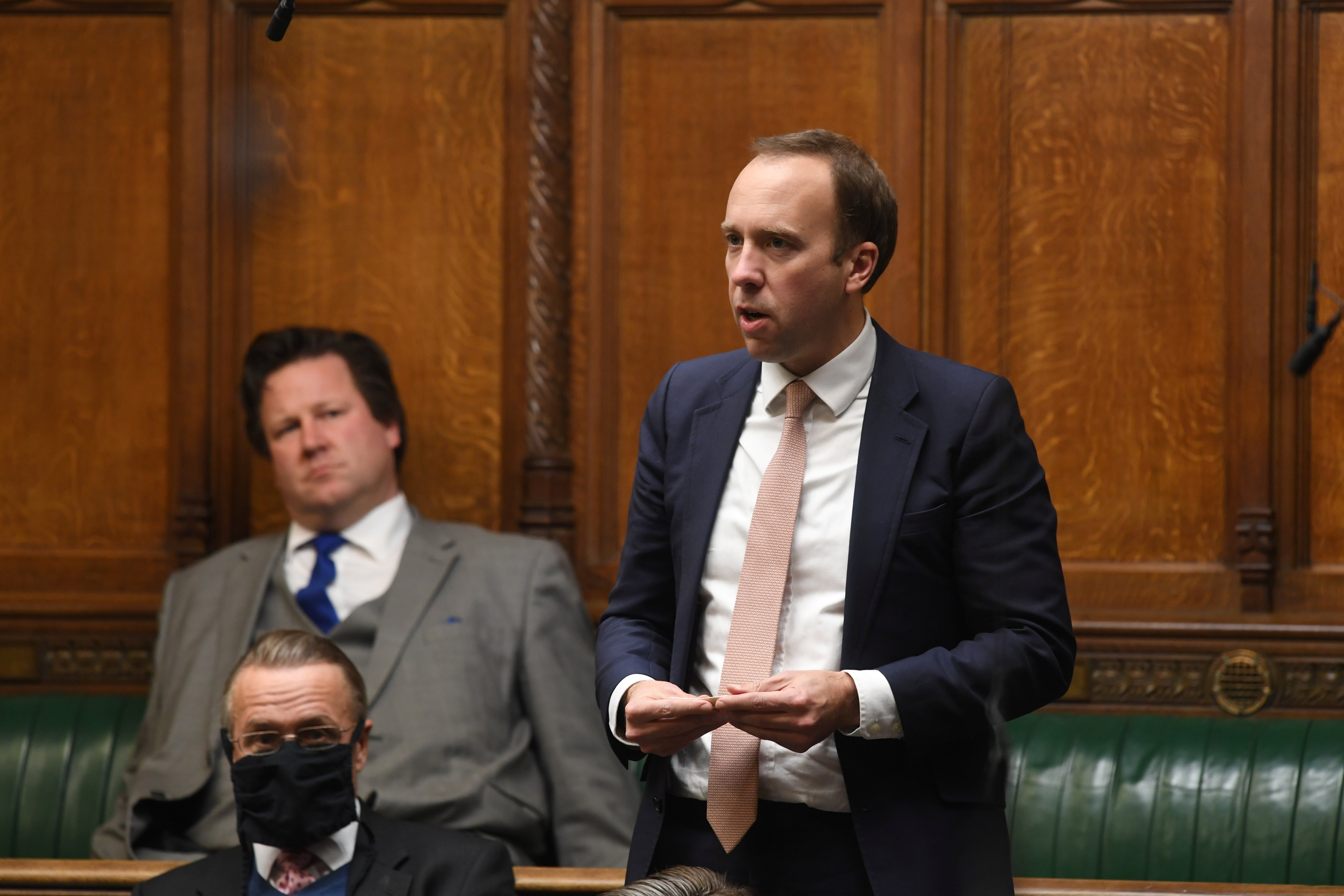Matt Hancock is trying to make a comeback – who is he kidding?
To get back into government the former health secretary has to shake off allegations about his conduct. His prospects don’t look good, says John Rentoul


Matt Hancock’s tenacity cannot be denied. Within weeks of his resignation as health secretary in June, his “friends” let it be known that he was hoping to return to government in due course. He was briefly appointed to a United Nations role before being disappointed – the meaning “failure to fulfil hopes” originally came from the word’s sense of being deprived of a job. Last night, he gave his first interview since his departure.
He said the government had got the balance right in its response to the omicron variant, “putting the effort into vaccination”, but he also said we should “test the hell out of ourselves”.
Inevitably, though, Robert Peston, ITV’s political editor, asked him about his resignation, and why he hadn’t resigned immediately when the video evidence that he had broken lockdown rules was published. “As you can imagine the first thing that I had to do, that I focused on, was my personal life,” said Hancock, “and when I focused on my professional responsibilities, I decided that I had to resign and that’s what I did.”
But it took 24 hours, protested Peston. “It should have taken you about two minutes.” Hancock looked as if he thought he might deserve some sympathy: “Well, I had blown up every part of my life, and I concentrated on my personal life first as you can probably imagine.”
He sounded briefly contrite: “I just say sorry again for the failure of... I let a lot of people down, and sorry to the people who I hurt.” But when Peston pressed him to apologise further for adding to the idea that “this is a government that does follow different rules from the rest of us”, Hancock fought back: “No, I totally disagree with that because I resigned and took responsibility for my actions.”
Which naturally prompted the next question, about whether he was hoping to get back into government soon. Hancock said, “I’m not in any hurry”, that being on the backbenches is an important job and that he was enjoying it, which sounded like a long way of saying “Yes”.
But to get back into government, he has to shake off allegations about his conduct as health secretary, which will be investigated by the public inquiry that the prime minister has promised will begin its work in the spring of next year.
Peston asked him about the Covid-related contract which Hancock’s “pub landlord” had won. Hancock had twice in the Commons denied any impropriety, although the terms of his initial denial had to be clarified when it emerged that Hancock’s constituent’s company was the subcontractor for a government contract.
Hancock’s protest that he had “nothing to do” with the contract would have been more credible if he hadn’t originally said that his constituent did not have a contract – but he sounded extremely confident that the inquiry would not find against him: “There will be an inquiry, it will look through all of this, as the National Audit Office already has, and do you know what it’ll find? It’ll find people working hard to save lives, and that’s it.”
He said he had already handed over all his emails, texts and WhatsApp messages to the department, “knowing that this is coming down the line”. I suspect that his confidence is justified. One of my unpopular opinions is that Hancock was a hard-working, effective minister who did a reasonable job in exceptional circumstances. What is more, he had already survived a frantic all-out attempt to bring him down the month before he brought himself down. Dominic Cummings, the prime minister’s former chief adviser, tried to throw everything at him in a seven-hour session at a select committee in May, but proved quite incapable of showing that Hancock had done anything wrong. (Another of my unpopular opinions is that the public inquiry is likely to accept the argument that some corners might have been justifiably cut in the desperate attempt to secure medical equipment in the early stage of the coronavirus crisis.)
However, Hancock is doomed to fall victim to the brutal reality of politics, which is that he has no coalition of support pressing for him to be given a job, and the prime minister has no strong reason to give him one. Although Johnson has been astute in bringing a handful of ministers back – notably Sajid Javid, who benefited from Hancock’s fall, but also George Freeman, back as a junior business minister, who was out and about this morning causing further confusion about pre-Christmas socialising guidelines. This is a way of keeping ex-ministers on the backbenches in line, with Hancock, Jeremy Hunt and Greg Clark, for example, all trying to be broadly supportive of the government while maintaining enough independence to look credible.
Of those three, I would guess that Hunt and Clark are likely to obtain ministerial office before Hancock.



Join our commenting forum
Join thought-provoking conversations, follow other Independent readers and see their replies
Comments